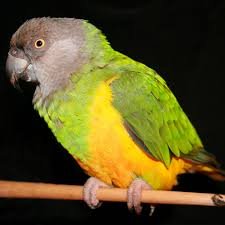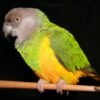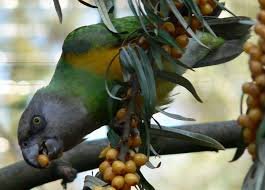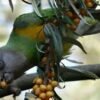Business
The Ultimate Guide to Senegal Parrots: Everything You Need to Know and Where to Find a Senegal Bird for Sale
The Senegal Parrot (Poicephalus senegalus) is a captivating bird known for its vibrant colors, intelligent nature, and affectionate demeanor. This parrot species has become a favorite among bird enthusiasts and pet owners due to its manageable size, relative quietness, and playful personality. If you’re considering adding a Senegal parrot to your family, this comprehensive guide will provide you with all the essential information you need, including where to find a Senegal bird for sale.
Table of Contents
- Introduction to the Senegal Parrot
- Natural Habitat of Senegal Parrots
- Physical Characteristics of the Senegal Parrot
- Senegal Parrot Personality and Temperament
- Where to Find a Senegal Bird for Sale
- How to Choose a Healthy Senegal Parrot
- Diet and Nutrition for Senegal Parrots
- Housing and Environment for Senegal Parrots
- Training and Socializing Your Senegal Parrot
- Common Health Issues and Lifespan of Senegal Parrots
- Pros and Cons of Owning a Senegal Parrot
- Conclusion: Is a Senegal Parrot Right for You?
1. Introduction to the Senegal Parrot
The Senegal Parrot is a small to medium-sized parrot that originates from West Africa. Known for its distinctive color pattern and friendly nature, it is a popular choice among bird lovers. This species belongs to the Poicephalus genus, which also includes other well-known parrots like the Meyer’s parrot and the red-bellied parrot.
Senegal parrots are appreciated for their ability to bond strongly with their owners and their relatively quiet demeanor compared to other parrot species. Their calm and loving nature, combined with their beautiful plumage, makes them an appealing choice for those looking for a new feathered friend.
2. Natural Habitat of Senegal Parrots
In their natural environment, Senegal Parrots are native to the woodlands and savannas of West Africa, including countries such as Senegal, Gambia, and Guinea-Bissau. They thrive in these habitats due to the availability of food and suitable nesting sites.
Senegal parrots typically live in small flocks or pairs and are known for their strong social bonds. In the wild, their diet consists of seeds, nuts, fruits, and occasionally insects. They are adept at flying and often use their skills to forage for food and evade predators.
Unfortunately, the natural habitat of Senegal parrots is under threat from deforestation and the illegal pet trade. Despite this, they remain relatively common in captivity, where they continue to be popular pets.
3. Physical Characteristics of the Senegal Parrot
Senegal Parrots are distinctive and easily recognizable due to their unique color patterns and relatively small size.
Key Physical Traits:
- Size: Senegal parrots are compact, measuring around 9-10 inches (23-25 cm) in length and weighing between 120-170 grams.
- Coloration: They have a vibrant color palette that includes a gray head, green back, and yellow to orange belly. This combination of colors creates a striking appearance.
- Eyes: Their eyes are bright yellow, adding to their expressive and charming look.
- Beak: The beak is strong and well-suited for cracking seeds and nuts. It is dark in color and robust.
- Tail: The tail is short and squared, with colors that often match the bird’s body feathers.
These physical characteristics contribute to the Senegal parrot’s attractiveness as a pet, making it a popular choice for those looking for a visually appealing companion.
4. Senegal Parrot Personality and Temperament
One of the standout features of the Senegal Parrot is its delightful personality. These parrots are known for their affectionate, intelligent, and playful nature.
Personality Traits:
- Affectionate: Senegal parrots form strong bonds with their owners and enjoy close contact. They often seek out physical affection and are known to cuddle and perch on their owners’ shoulders.
- Quiet: Compared to other parrot species, Senegal parrots are relatively quiet. They do vocalize, but their sounds are less disruptive than those of larger parrots like macaws or cockatoos.
- Playful and Curious: These birds are highly intelligent and enjoy playing with toys, solving puzzles, and exploring their environment. They require mental stimulation to stay happy and healthy.
- Independent: While they love attention, Senegal parrots are also content to entertain themselves with toys or explore their surroundings, making them a good option for people with busy lifestyles.
Proper socialization is essential to prevent behavioral issues, such as excessive biting or fearfulness. A well-socialized Senegal parrot will be a happy and well-adjusted companion.
5. Where to Find a Senegal Bird for Sale
If you’re interested in adding a Senegal Parrot to your family, it’s important to find a reputable source. There are several options for purchasing or adopting a Senegal bird, each with its own benefits and considerations.
Where to Look:
- Breeders: Reputable breeders are often the best source for purchasing a Senegal parrot. Look for breeders who prioritize the health and well-being of their birds and who can provide health records and information about the bird’s lineage.
- Pet Stores: Some specialty pet stores may carry Senegal parrots. However, it’s crucial to ensure that the store has a good reputation for ethical practices and the proper care of their birds.
- Rescue Organizations: Parrot rescue organizations often have Senegal parrots available for adoption. Adopting from a rescue can be a rewarding experience and provides a home for a bird in need.
- Online Marketplaces: Online platforms may list Senegal parrots for sale, but it’s essential to research the seller thoroughly. Ensure they are reputable and that the bird is healthy and well-cared-for.
Before purchasing or adopting a Senegal parrot, do your due diligence to ensure that you are supporting ethical practices and that the bird is coming from a healthy environment.
6. How to Choose a Healthy Senegal Parrot
Selecting a healthy Senegal Parrot is crucial to ensuring a long, happy life for your new pet. Here are some tips for evaluating the health of a Senegal parrot before you buy or adopt:
Health Indicators:
- Clear Eyes: Healthy Senegal parrots have bright, clear eyes with no discharge or signs of infection.
- Smooth Feathers: The feathers should be smooth, well-groomed, and free of bald patches or signs of plucking.
- Active and Alert: A healthy bird is active, curious, and responsive. Avoid birds that seem lethargic or disinterested.
- Clean Beak and Vent: Check for cleanliness around the beak and vent area. Any signs of discharge or soiling could indicate health issues.
- Steady Breathing: The bird should have smooth, even breathing without wheezing or labored breaths.
Request a health certificate from a veterinarian if possible, and ask about the bird’s history and any health concerns. This will help ensure you are bringing a healthy and well-adjusted parrot into your home.
7. Diet and Nutrition for Senegal Parrots
A well-balanced diet is vital for the health and well-being of your Senegal Parrot. In the wild, these birds consume a diverse diet, and in captivity, their diet should mimic this variety as closely as possible.
Feeding Guidelines:
- Pellets: A high-quality pellet diet should form the basis of your Senegal parrot’s nutrition. Pellets are specially formulated to provide balanced vitamins and minerals.
- Fresh Fruits and Vegetables: Offer a variety of fresh fruits and vegetables to your Senegal parrot. Some favorites include apples, carrots, bell peppers, and leafy greens. These provide essential nutrients and enrichment.
- Seeds and Nuts: While seeds should be offered in moderation due to their high fat content, nuts like almonds and walnuts can be given as occasional treats.
- Grains and Legumes: Include cooked grains such as quinoa, brown rice, and whole wheat pasta, as well as legumes like lentils and chickpeas for additional nutrients.
- Fresh Water: Always provide fresh, clean water for your parrot. Change the water daily to ensure it remains clean and free of contaminants.
Avoid feeding your Senegal parrot foods that are toxic, including avocado, chocolate, caffeine, and foods high in salt or sugar.
8. Housing and Environment for Senegal Parrots
Creating a suitable living environment is crucial for the happiness and health of your Senegal Parrot. These birds need ample space to move, play, and exercise.
Cage Requirements:
- Size: The minimum recommended cage size for a Senegal parrot is 24 x 24 x 24 inches. However, larger cages are always preferable to allow more space for movement and play.
- Perches: Provide a variety of perches with different textures and diameters to promote foot health. Natural wood perches are ideal.
- Toys and Enrichment: Senegal parrots are intelligent and need mental stimulation. Offer a range of toys, including puzzle toys, foraging toys, and chew toys. Rotate the toys regularly to keep your bird engaged.
- Climbing Structures: Include climbing structures such as ropes, ladders, and swings to encourage physical activity and exploration.
- Cleanliness: Regularly clean the cage to prevent the buildup of waste and food debris. This helps maintain a healthy environment for your bird.
Place the cage in a safe area of your home where the bird can interact with the family but is protected from drafts, direct sunlight, and potential hazards.
9. Training and Socializing Your Senegal Parrot
Training and socialization are essential for ensuring a well-behaved and well-adjusted Senegal Parrot. These birds are highly intelligent and can be trained to perform tricks and follow commands.
Training Tips:
- Positive Reinforcement: Use treats, praise, and attention to reward good behavior. Positive reinforcement helps reinforce desired actions and behaviors.
- Consistency: Be consistent with commands and training routines. Short, regular training sessions are more effective than long, infrequent ones.
- Basic Commands: Start with simple commands like “step up” and “step down” to build trust and communication with your parrot.
- Tricks and Enrichment: Once basic commands are mastered, you can teach your Senegal parrot tricks such as turning around, fetching objects, or mimicking sounds. This provides mental stimulation and strengthens your bond.
- Socialization: Introduce your parrot to different people, environments, and experiences to help it become well-adjusted and confident. Proper socialization helps prevent fear-based behaviors and promotes a positive attitude towards new situations.
10. Common Health Issues and Lifespan of Senegal Parrots
With proper care, Senegal Parrots can live between 20 and 30 years in captivity. Regular veterinary check-ups and a balanced diet are essential for their health.
Common Health Issues:
- Feather Plucking: Feather plucking can be caused by stress, boredom, or underlying health issues. Address the root cause and provide mental stimulation to help prevent this behavior.
- Psittacosis: Also known as parrot fever, this bacterial infection can cause respiratory symptoms and lethargy. Regular vet visits can help catch and treat this condition early.
- Nutritional Deficiencies: Ensure a balanced diet to avoid deficiencies in vitamins and minerals, which can affect feather quality and overall health.
Regular check-ups with an avian veterinarian are essential for maintaining your Senegal parrot’s health and addressing any potential issues before they become serious.
11. Pros and Cons of Owning a Senegal Parrot
Owning a Senegal Parrot offers various benefits and challenges. It’s important to weigh these factors before deciding to bring one into your home.
Pros:
- Affectionate and Loving: Senegal parrots form strong bonds with their owners and are known for their affectionate behavior.
- Relatively Quiet: Compared to other parrots, Senegal parrots are quieter, making them suitable for apartment living.
- Intelligent and Playful: These birds are smart and enjoy learning new tricks and playing with toys, providing mental stimulation and entertainment.
Cons:
- Attention Needs: Senegal parrots require a significant amount of social interaction and mental stimulation. They can become bored and potentially destructive if neglected.
- Messy: Like all parrots, Senegal parrots can be messy eaters, and their cages need regular cleaning.
- Potential for Biting: While generally gentle, Senegal parrots may bite if they feel threatened or overstimulated. Proper training and socialization can help minimize this behavior.
12. Conclusion: Is a Senegal Parrot Right for You?
The Senegal Parrot is a charming, intelligent, and affectionate bird that can make a wonderful companion for the right person. With their beautiful plumage, playful personality, and relatively quiet nature, Senegal parrots are ideal for those who can provide the time, attention, and care they need.
Before deciding to bring a Senegal parrot into your home, ensure that you are prepared for the commitment and responsibilities involved in caring for this long-lived and social bird. By providing a proper diet, a stimulating environment, and regular veterinary care, you can enjoy a rewarding and fulfilling relationship with your Senegal parrot for many years to come.

























